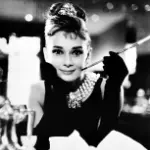Chilean director Pablo Larraín has never been a widely recognized filmmaker, and before creating "Jackie," he didn't have many well-known works. However, the involvement of Oscar-winning actress Natalie Portman and the nation-level subject matter of the Kennedys around the Kennedy assassination drew considerable attention to "Jackie." The film received praise from many critics at the Toronto International Film Festival, with Natalie Portman's phenomenal performance making audiences believe she had secured another Oscar.
Yet, Pablo Larraín remains relatively low-profile. In 2016, he directed "Neruda" and his first English-language feature, "Jackie," but he didn't step too far into the public eye, something he didn’t seem to be very eager for. After receiving acclaim at Toronto, "Jackie," which Searchlight Pictures acquired for distribution with hope for an Oscar, started reaching a broader audience at the end of 2016. The critical reception post-release seems to be mixed, and audience reviews are, at best, lukewarm. The film, despite being heavily promoted for awards consideration, seems somewhat disappointing.
From my personal perspective, "Jackie" contains two different sides. When regarded only as a biopic movie, it is mediocre. However, as we delve into the psychological exploration of the characters, it becomes truly remarkable.

"Jackie" tells the story of Jacqueline Kennedy's situation before and after President Kennedy's assassination in Dallas. The film starts with Jacqueline being interviewed a week after the assassination, and we gradually explore her inner thoughts during her two years in the White House. Later, we discover that this interview is the famous one conducted by Theodore H. White for Life magazine. Natalie Portman, in preparation for her role as Jacqueline, extensively studied Jacqueline's famous White House tour video. Due to her prolonged study, Portman's performance is incredible. Not only did she replicate Jacqueline's mannerisms and expression, she also successfully mimics her accent flawlessly. However, the most outstanding detail in Portman's performance is her speculative portrayal of Jacqueline's psychological state before and after the assassination, presented convincingly to the audience. In 2016, Isabelle Huppert's performance in "Elle" was flawless, Emma Stone was charming in "La La Land," and Rebecca Hall was both depressive and insane in "Christine." However, Natalie Portman's portrayal of Jacqueline Kennedy encompasses all these actresses'.

Despite Portman's stunning performance, "Jackie" chooses to waste considerable time trying to recreate the conflict between Jacqueline and Theodore H. White during the interview. This is understandable since, based solely on the film's title, audiences might anticipate a conventional Oscar-worthy biographical film. However, director Larraín, as an ambitious filmmaker, undoubtedly wanted to create a film deeper than an average biopic. Therefore, when he abandons a straightforward retelling of Jacqueline's White House life and the events around the assassination, he needs an entry point for a fragmented replay. Each time we begin to grasp Jacqueline's emotions in the flashback, just as it seems we are getting closer to understanding her psychological journey, the film abruptly shifts back to the interview scenes, compelling us to witness White's disrespect toward Jacqueline. We witness Jacqueline navigating her way through an era that disrespects women and observe her attempts to exert her power in the face of these challenges. Consequently, the audience experiences a film that combines two incompatible aspects, resulting in an odd blend. These conflicting elements clash to such an extent that they fail to merge into a more cohesive whole, which is a regrettable aspect of the film.
If Larraín could have followed his ambitions and focused the narrative on allowing the audience more time to be alone with Jacqueline to understand her psychological state better, "Jackie" would likely have become a deeper film. The impeccable cinematography would have been even more appreciated under different circumstances. To present Jacqueline's complex inner feelings, cinematographer Stéphane Fontaine continuously uses low-angle close-up shots, vividly displaying Portman's detailed facial expressions. Meanwhile, the 16mm film format is chosen to seamlessly connect film scenes to existing footages. Furthermore, Larraín and Fontaine put significant effort into color grading. The high-saturation Kodak film used for the replay scenes stands in stark contrast to the more oppressive interview scenes, creating a more comforting atmosphere in the White House scenes.
Similarly, the choice of the composer also reflects Larraín's ambition. Mica Levi, a young composer who had previously worked on only one film, delivered an unbelievably good score for "Under the Skin." Her score for "Jackie" creates an elusive, mysterious atmosphere, forcefully constructing Jacqueline's misty mental state and her dual characters both in front of the public eyes and behind the closed doors.

It's precisely due to the exceptional contributions from cinematography and the score that "Jackie," despite narrative issues and uncertainty in its focus, can still be regarded as one of the highlights of 2016. Through Portman's engaging performance and the masterful mise-en-scene of light and shadows in the visuals, we can still understand Jacqueline's complicated psychological state as she strives to ensure Kennedy's legend is not forgotten by history. As she explains to White, "Don't let them forget that, even if it was fleeting, there was once a shining place called Camelot." Although only for a fleeting while, "Jackie" contained moments that were incomparable. For Pablo Larraín's first English-language work, it is undoubtedly commendable.








Share your thoughts!
Be the first to start the conversation.